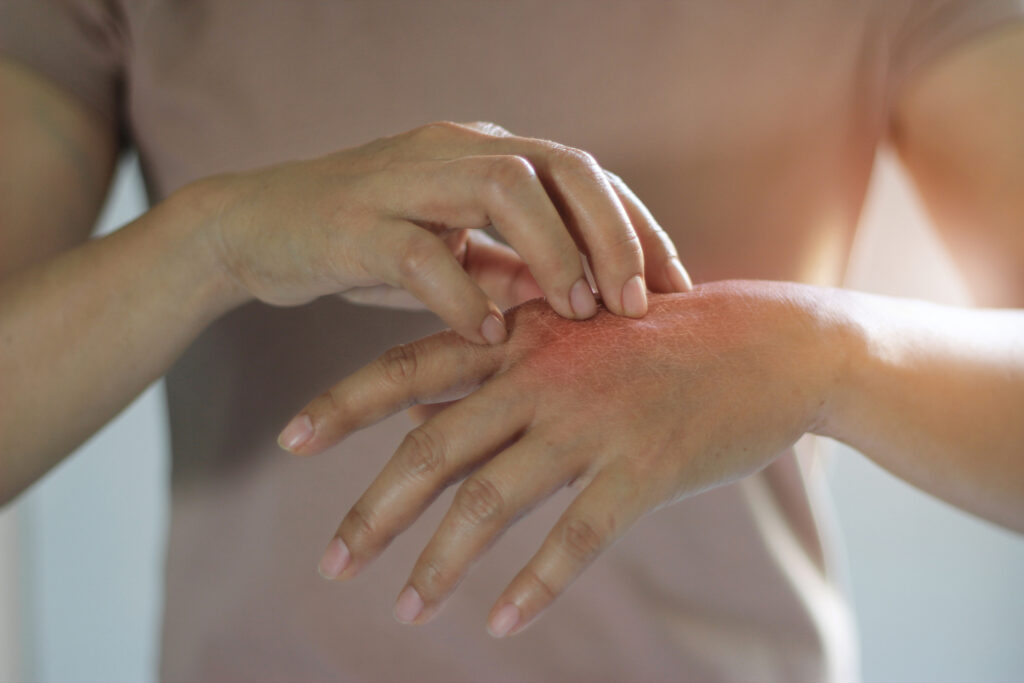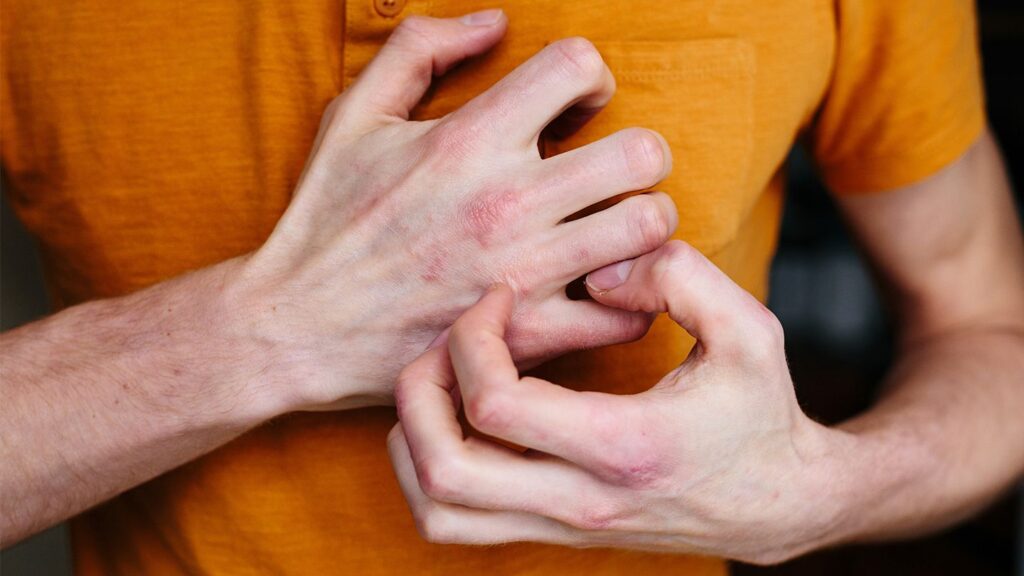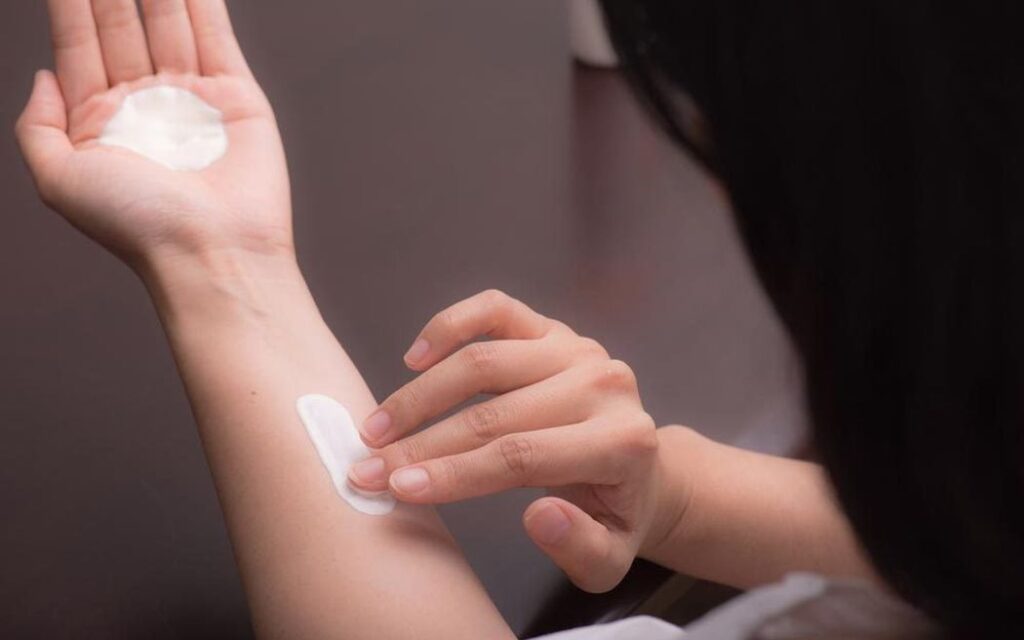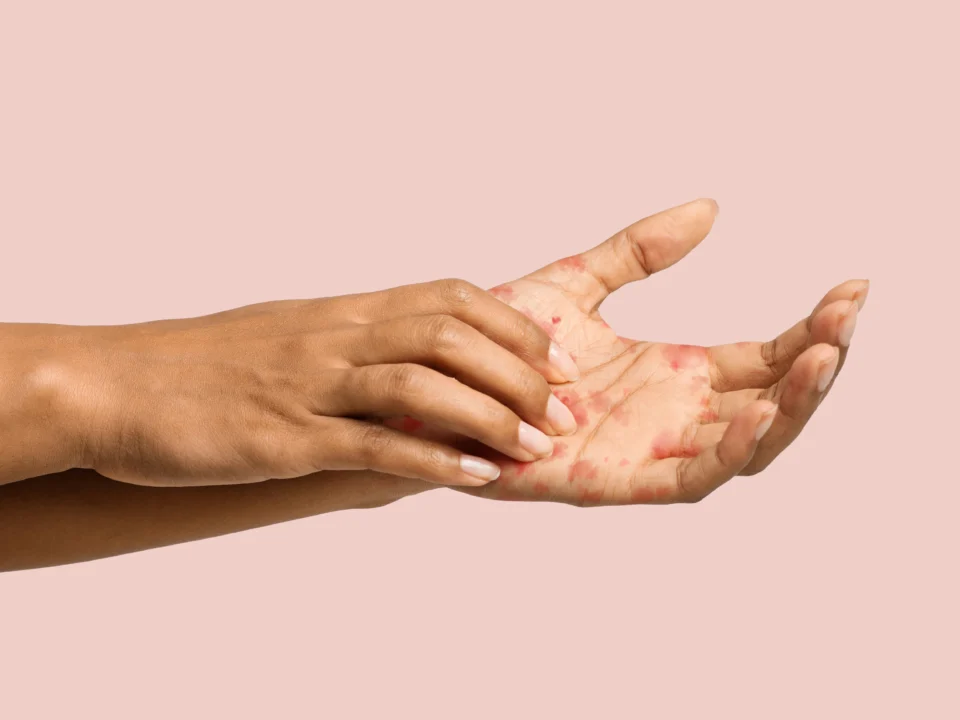Hand eczema is a skin condition that affects millions of people worldwide. It can be painful, uncomfortable, and even embarrassing, as it can cause dry, cracked, and scaly skin on the hands. Fortunately, there are many ways to manage and hand eczema. In this blog post, we will explore the different ways to finally get rid of hand eczema, including the causes, symptoms, and treatments.
Understanding Eczema: Causes and Symptoms

Hand eczema is a skin condition that occurs when the skin on the hands becomes irritated or inflamed. It can be caused by a variety of factors, including genetics, allergies, and environmental irritants. Some of the most common triggers of eczema include:
- Contact with irritants, such as soaps, detergents, and solvents
- Exposure to allergens, such as pollen, pet dander, and dust mites
- Cold and dry weather conditions
- Stress and anxiety
- Genetics
The symptoms of eczema can vary depending on the severity of the condition. Some common symptoms include:
- Dry, scaly skin on the hands
- Redness and inflammation
- Itching and burning
- Cracks and fissures on the skin
- Blisters and oozing
Prescription Medications: Options and Considerations
Prescription medications for eczema can include topical creams, ointments, and even oral medications. Topical corticosteroids are common ingredients in eczema cream and can help reduce inflammation and itching. Other topical treatments include calcineurin inhibitors, which can help reduce inflammation and improve skin barrier function.
In some cases, oral medications such as immunosuppressants or biologics may be prescribed. These medications can help reduce inflammation and improve symptoms, but they can also have potential side effects, so it is important to discuss the risks and benefits with your doctor.
Identifying Triggers: Allergens and Irritants

If you suffer from hand eczema, it is important to identify the triggers that can cause or worsen your symptoms. Allergens and irritants are two of the most common triggers of eczema. Some common allergens include pollen, pet dander, and dust mites, while irritants can include soaps, detergents, and solvents.
To identify your triggers, keep a journal of your symptoms and note when they occur. This can help you identify patterns and potential triggers. You may also want to consider getting an allergy test to identify any potential allergens.
Avoiding Common Triggers: Tips for Prevention
Once you have identified your triggers, it is important to take steps to avoid them. Here are some tips for preventing eczema:
- Wear gloves when working with irritants, such as soaps and detergents
- Use mild, fragrance-free soaps and moisturizers
- Avoid hot water when washing your hands
- Keep your hands moisturized throughout the day
- Wear gloves or mittens in cold weather
Skincare Routine: Tips for Managing Eczema

Establishing a regular skincare routine is crucial in managing symptoms effectively. Here are some tips for managing eczema through a proper skincare routine:
- Use a mild, fragrance-free soap to wash your hands: Harsh soaps and detergents can strip the skin of its natural oils, exacerbating eczema symptoms. A gentle, fragrance-free soap can help cleanse the skin without causing further irritation.
- Pat your hands dry with a soft towel: Rubbing your hands with a towel can cause irritation and worsen eczema symptoms. Instead, gently pat your hands dry with a soft towel to avoid further damage.
- Apply a moisturizer immediately after washing your hands: Moisturizing your hands immediately after washing them can help lock in moisture and prevent further drying. Choose a thick, fragrance-free, ointment-based moisturizer that will help repair and protect the skin barrier.
- Use a thick, ointment-based moisturizer to lock in moisture: Applying a thick layer of moisturizer can help protect the skin and prevent further irritation. Ointment-based moisturizers are typically more effective than lotions or creams and provide a longer-lasting protective barrier.
- Apply the cream before bed to help heal dry, cracked skin: Before going to bed, apply a thick layer of hand cream to your hands to help repair dry, cracked skin overnight. Wearing cotton gloves over the hand cream can further help to lock in moisture.
- Wear cotton gloves at night to help lock in moisture: Cotton gloves can help to lock in the moisturizer applied to your hands before bed. This will help to reduce dryness and further prevent itching and cracking.
Over-the-Counter Remedies: What to Look For
There are many over-the-counter remedies available for managing eczema. When choosing a product, look for one that contains ingredients that can help soothe and moisturize the skin. Some ingredients to look for include:
- Colloidal oatmeal
- Aloe vera
- Shea butter
- Coconut oil
- Petroleum jelly
Be sure to read the label carefully and choose a product that is free of fragrances and other irritants.
Alternative and Complementary Therapies

In addition to traditional medical treatments, there are also alternative and complementary therapies that may help manage eczema. Some of these therapies include:
- Acupuncture
- Hypnosis
- Meditation
- Aromatherapy
- Herbal remedies
While these therapies may not be effective for everyone, some people may find relief from their symptoms with these treatments.
Seeking Professional Help: When to See a Doctor
If you are experiencing severe eczema that is not responding to home remedies or over-the-counter treatments, it is important to seek professional help from a dermatologist. A dermatologist can diagnose the type and severity of your eczema and create a treatment plan tailored to your needs.
During your appointment, your dermatologist will examine your hands and may perform tests to determine the underlying cause of your eczema. Depending on the severity of your condition, your dermatologist may recommend prescription medications such as corticosteroids or immunosuppressants. They may also suggest phototherapy or other medical treatments.
It is important to follow your dermatologist’s instructions carefully and attend any follow-up appointments. Your dermatologist can help monitor your condition and adjust your treatment plan as needed. Remember, seeking professional help is important to effectively manage and treat eczema and prevent long-term damage to your skin.
Coping with Emotional Impact: Dealing with Stress and Anxiety

Living with hand eczema can be emotionally challenging, as it can be uncomfortable and even embarrassing. It is important to take steps to manage the emotional impact of the condition. Here are some tips for coping with the emotional impact of eczema:
- Practice stress-reducing techniques, such as meditation or yoga
- Talk to a therapist or counselor
- Join a support group for people with hand eczema
- Practice self-care activities, such as taking a bath or reading a book
Conclusion
In conclusion, the key to getting rid of hand eczema is understanding and identifying triggers, using moisturizing skin care products, avoiding harsh soaps and cleansers, and taking steps to protect your skin from further damage. With these tips in mind, you can finally begin to get your hands back under control. Keep in mind that even if it takes some time for relief to set in after making lifestyle changes and following dermatologist-recommended treatments; don’t give up on yourself—your health is worth fighting for!

